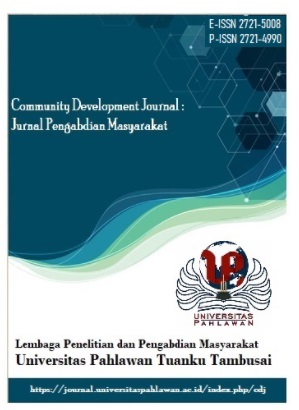SMART LEARNING: THE IMPACT OF AI TECHNOLOGIES ON ENGLISH LANGUAGE PROFICIENCY IN THE DIGITAL ERA
DOI:
https://doi.org/10.31004/jrpp.v7i4.34436Keywords:
Teknologi AI, Kemahiran Bahasa Inggris.Abstract
Penelitian ini mengkaji dampak alat berbasis AI terhadap kemahiran berbahasa Inggris di kalangan mahasiswa General English di Universitas Hamzanwadi. Pendekatan deskriptif kualitatif digunakan untuk mengeksplorasi bagaimana teknologi AI, termasuk aplikasi pembelajaran bahasa, pengenalan ucapan otomatis, dan gamifikasi, memengaruhi perolehan kosakata, ketepatan pengucapan, dan kelancaran bahasa secara keseluruhan. Data dari 20 mahasiswa dikumpulkan melalui observasi, kuesioner, dan wawancara. Hasil penelitian menunjukkan bahwa alat berbasis AI secara signifikan meningkatkan keterampilan berbahasa Inggris mahasiswa, terutama dalam berbicara, mendengarkan, membaca, dan menulis. Mahasiswa melaporkan peningkatan kepercayaan diri dalam berbicara, antusiasme yang lebih besar dalam membaca, dan kemampuan menulis yang lebih baik. Selain itu, 60% mahasiswa setuju bahwa alat berbasis AI meningkatkan keterampilan mendengarkan mereka. Penelitian ini menyimpulkan bahwa teknologi AI menawarkan pengalaman belajar yang dipersonalisasi dan interaktif yang mengurangi kecemasan, meningkatkan kepercayaan diri, dan meningkatkan motivasi. Disarankan agar para pendidik EFL lebih banyak mengintegrasikan alat berbasis AI dalam strategi pengajaran mereka untuk memaksimalkan manfaat ini, sambil terus menyempurnakan alat tersebut berdasarkan umpan balik mahasiswa guna meningkatkan efektivitas dalam pembelajaran bahasa.References
Abbass, H. A. (2019). Social integration of artificial intelligence: functions, automation allocation logic and human-autonomy trust. Cognitive Computation, 11(2), 159-171. https://doi.org/10.1007/s12559-018-9619-0
Ahmadi, D. M. R. (2018). The use of technology in English language learning: A literature review. International journal of research in English education, 3(2), 115-125. http://dx.doi.org/10.29252/ijree.3.2.115
Anis, M. (2023). Leveraging artificial intelligence for inclusive English language teaching: Strategies and implications for learner diversity. Journal of Multidisciplinary Educational Research, 12(6), 54-70. http://ijmer.in.doi./2023/12.06.89
Bahroun, Z., Anane, C., Ahmed, V., & Zacca, A. (2023). Transforming education: A comprehensive review of generative artificial intelligence in educational settings through bibliometric and content analysis. Sustainability, 15(17), 12983. https://doi.org/10.3390/su151712983
Chen, H. H. J. (2011). Developing and evaluating an oral skills training website supported by automatic speech recognition technology. ReCALL, 23(1), 59-78. https://doi.org/10.1017/S0958344010000285
Chiu, T. K., & Chai, C. S. (2020). Sustainable curriculum planning for artificial intelligence education: A self-determination theory perspective. Sustainability, 12(14), 5568. https://doi.org/10.3390/su12145568
Gligorea, I., Cioca, M., Oancea, R., Gorski, A. T., Gorski, H., & Tudorache, P. (2023). Adaptive learning using artificial intelligence in e-learning: a literature review. Education Sciences, 13(12), 1216. https://doi.org/10.3390/educsci13121216
Guo, Q., & Barrot, J. S. (2019). Effects of metalinguistic explanation and direct correction on EFL learners’ linguistic accuracy. Reading & Writing Quarterly, 35(3), 261-276. https://doi.org/10.1080/10573569.2018.1540320
Haymon, C., & Wilson, A. (2020). Differentiated reading instruction with technology for advanced middle school students’ reading achievement. Journal of Educational Research and https://doi.org/10.5590/JERAP.2020.10.1.05
Kemme, B., Ramalingam, G., Schiper, A., Shapiro, M., & Vaswani, K. (2013). Consistency in distributed systems. Dagstuhl Reports, 3(2), 92-126. https://inria.hal.science/hal-00932737/
Kessler, M., Loewen, S., & Gönülal, T. (2023). Mobile-assisted language learning with Babbel and Duolingo: comparing L2 learning gains and user experience. Computer Assisted Language Learning, 1-25. https://doi.org/10.1080/09588221.2023.2215294
Mohajan, H. K. (2020). Quantitative research: A successful investigation in natural and social sciences. Journal of Economic Development, Environment and People, 9(4), 50-79. https://www.ceeol.com/search/article-detail?id=939590
Pokrivcakova, S. (2019). Preparing teachers for the application of AI-powered technologies in foreign language education. Journal of Language and Cultural Education, 7(3), 135-153. https://doi.org/10.2478/jolace-2019-0025
Srinivasa, K. G., Kurni, M., & Saritha, K. (2022). Harnessing the Power of AI to Education. In Learning, teaching, and assessment methods for contemporary learners: pedagogy for the digital generation (pp. 311-342). Singapore: Springer Nature Singapore.
Tsay, C. H. H., Kofinas, A. K., Trivedi, S. K., & Yang, Y. (2020). Overcoming the novelty effect in online gamified learning systems: An empirical evaluation of student engagement and performance. Journal of Computer Assisted Learning, 36(2), 128-146. https://doi.org/10.1111/jcal.12385
Wang, P. (2019). On defining artificial intelligence. Journal of Artificial General Intelligence, 10(2), 1-37. https://intapi.sciendo.com/pdf/10.2478/jagi-2019-0002
Downloads
Published
How to Cite
Issue
Section
License
Copyright (c) 2024 Aling Siyan Sabili, M. Adib Nazri, Siti Ayu Surayya, Laila Wati

This work is licensed under a Creative Commons Attribution-ShareAlike 4.0 International License.






